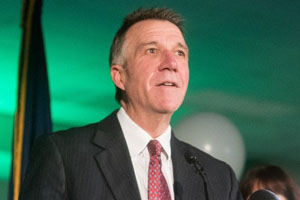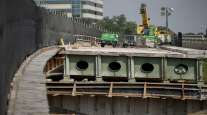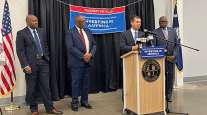Vermont’s Gov.-Elect Phil Scott Wants to Boost Transportation, Not Taxes

“When we make smart investments in transportation, when roads and bridges are smooth and safe and the transportation system is efficient, I think it benefits everyone in every sector of the economy,” said Scott, the current lieutenant governor, as reported by The Rutland Herald.
But Scott vowed not to increase Vermont’s taxes of 32 cents per gallon on diesel and 30.46 cents per gallon on gasoline. Some Vermont Democrats have proposed phasing in a carbon tax, which eventually could reach 88 cents per gallon on fuel, most of which would be returned to taxpayers via rebates.
“Too many Vermonters are struggling because of the growing crisis of affordability, and I firmly believe we cannot afford to raise taxes,” Scott said. “Vermonters cannot afford higher costs for gasoline or home heating fuel. A carbon tax, I believe, would also increase the cost of living across the board, from fuel to groceries to even a cord of wood.”
Scott wants no diversion of transportation fund revenue for other needs and to reverse the 2014 reduction in Vermont’s research-and-development tax credit in hopes of encouraging companies to develop the “next generation of hybrid or electric vehicle components or the next alternative fuel” in the state.
Scott expects Vermont to benefit from President-elect Donald Trump’s promise of a 10-year, $1 trillion transportation funding package.
“The president-elect has outlined some bold infrastructure plans,” Scott said, as reported by Vermont Public Radio. “I will advocate for federal dollars and federal reforms, as well as flexibility, and work with other governors from around the country to encourage Congress to address our nation's transportation challenges on a national level.”




